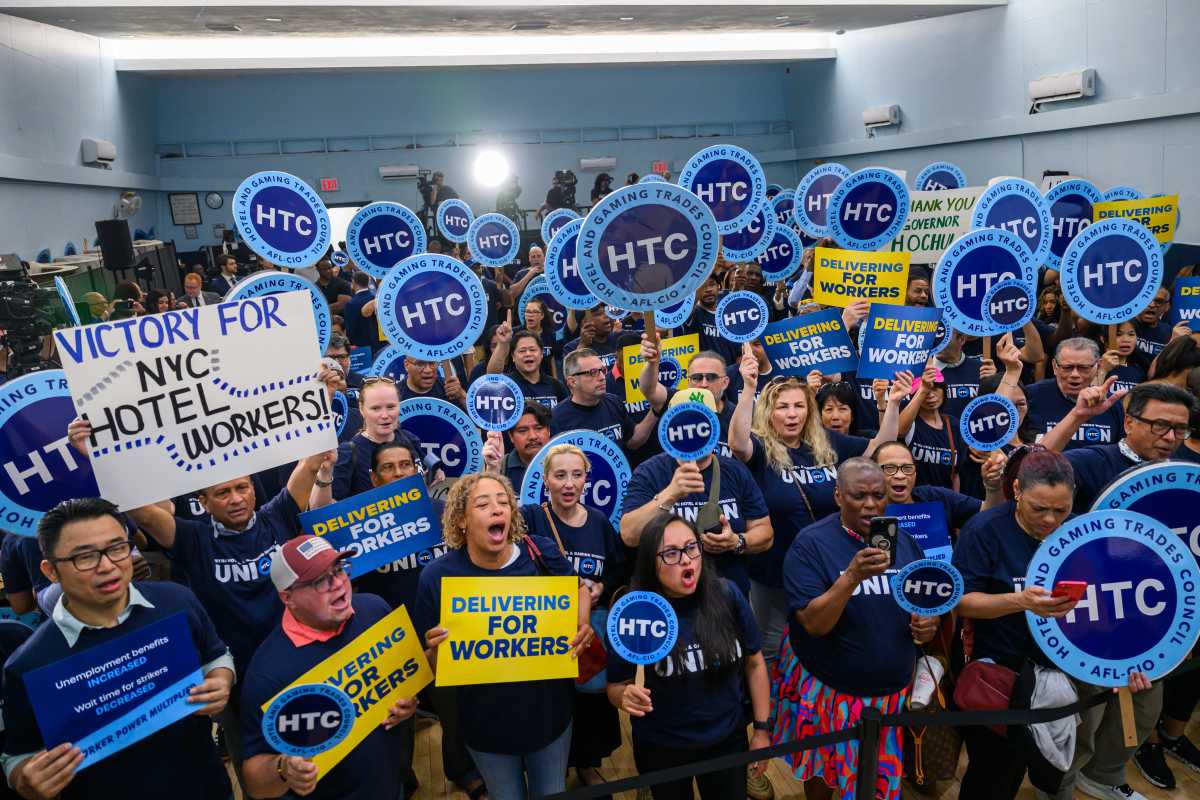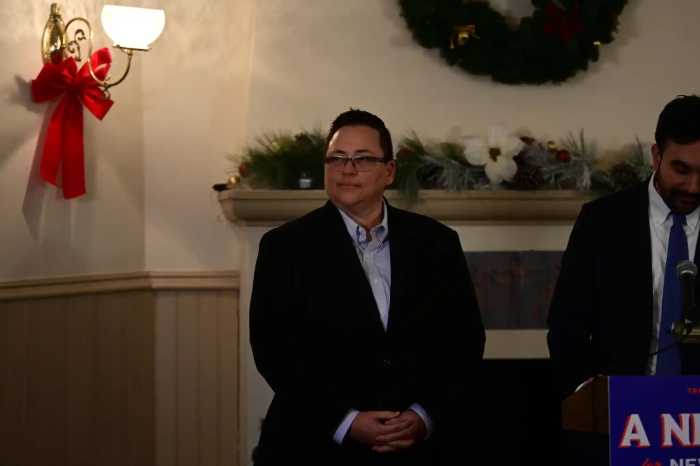Unemployment benefits in New York will go up by more than $300 per week starting in October, thanks to legislation recently approved in Albany.
Gov. Kathy Hochul on Monday joined the Hotel and Gaming Trades Council (HTC), AFL-CIO, to celebrate the passage of state legislation that pays off the nearly $7 billion federal Unemployment Insurance Trust Fund loan and raises the longtime cap on jobless benefits for workers in New York.
The labor win is part of the state’s Fiscal Year 2026 Enacted Budget, which was completed and announced in May. With the state paying off the federal unemployment loan, it will move to raise the cap on unemployment benefits from $504 per week to $869 per week, a change set to go into effect in October.
The increase of over 72% is the largest increase of the unemployment cap in state history, said HTC President Rich Maroko at Monday’s announcement.
“These are really tough times for our people, and when we can do something like this, it sends a message that we care so deeply about every stress that people are going through, especially the high cost of living,” Hochul told the group of union members at the Monday rally. “It is oppressive, it is so discouraging, because you work hard.”

The $504 weekly unemployment cap has been in place since 2019, losing value over time as laid-off workers in New York combat inflation and a rapidly increasing cost of living.
Hochul discussed the legislation alongside state Senate Majority Leader Andrea Stewart-Cousins, Assembly Speaker Carl Heastie and State Department of Labor Commissioner Roberta Reardon. The goal of the legislation is “putting money back into New Yorkers’ pockets” amid rising costs, Hochul said.
The new legislation also reduces the benefits delay for striking workers from three weeks to two weeks, giving greater leeway for union workers striking for better pay. The HTC’s industry-wide contract expires at the end of Fiscal Year 2026, in exactly one year.
“At its core, the fundamental purpose of the unemployment insurance system is to provide a safety net,” Maroko said at Wednesday’s event. “It’s a safety net that’s supposed to catch workers who lose their jobs and provide to them short-term benefits that are at least enough for them to be able to keep their heads above water during that difficult period between jobs.”
Maroko noted that hotel workers and employees in other seasonal industries are more vulnerable to layoffs in the off-season than workers in more year-round industries. The current benefit cap of $504 per week “doesn’t even cover rent, much less the other basic necessities like groceries and utilities and healthcare,” Maroko said.
“The elected leaders standing here with me, they recognized that problem, and they fixed it,” Maroko said.
In paying off the federal loan, the state is alleviating some financial pressure from business owners whose contribution rates had increased while the debt was being paid off. The legislation puts a greater onus on the state to directly support laid-off workers. The new budget also includes a middle-class tax rate cut, an inflation rebate, and a child tax credit for New York families.
“We have been laser-focused on affordability, and we’re just getting warmed up,” Hochul said.
The new budget goes into effect Tuesday, the first day of fiscal year 2026.



































